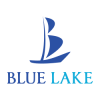Understanding how search engines discover and index web content is crucial. Search engines primarily use link creation as the main method to search for and index new content. When a search engine detects a new link, it will follow it to explore related web content. This is similar to how you and I click on links to navigate from one page to another on the internet.
An effective way to ensure search engines discover new content is through creating HTML sitemaps and XML sitemaps. An HTML sitemap is a visual list of links on a webpage, while an XML sitemap provides a special format list that search engines can easily read and understand. According to sitemap.org, you can learn how to create XML sitemaps with specific syntax.
Controlling how search engines crawl your website is also crucial. The robots.txt file is a way for you to control this process. If you want to prevent certain pages from being indexed or ranked, you can use the noindex meta tag. However, it’s important to note that you should not block pages in robots.txt when using the noindex tag.
Having a unique URL and clear URL structure is also an important factor in optimizing indexing. Search engines understand and index websites based on these URLs. Ensuring each page of your site has a unique URL helps the search engine differentiate this page from others.
Additionally, using long tail and short tail keywords can improve the search performance of your website. This increases the chance for your website to be indexed in search results and attract more traffic.
Another approach to optimizing indexing is to monitor and observe the website crawling process using analytical tools. This way, you can better understand how search engines operate and adjust your optimization strategy accordingly.
In conclusion, optimizing website indexing requires an understanding of how search engines operate and how to optimize your content to fit. By creating links, sitemaps, and controlling crawling rules, you can help search engines understand and index your website more efficiently.
- Optimizing Website Indexing Methods
- Optimizing Online Presence: The Power of HTML and Dynamic Languages
- Optimizing SEO Strategy for Personalized Search
- Optimal Keyword Selection and SEO Strategy: Enhancing Website Performance
- Optimizing Textual Page Elements
- Optimizing Website Structure Strategy
- Content Optimization for Enhanced Website Performance
- Continuous Keyword Evaluation: The Foundation for SEO Success
- Keyword Distribution Process: Optimizing Website Content Effectively
- SEO Strategy: Effective Keyword Selection for Businesses
Tác giả Hồ Đức Duy. © Sao chép luôn giữ tác quyền





